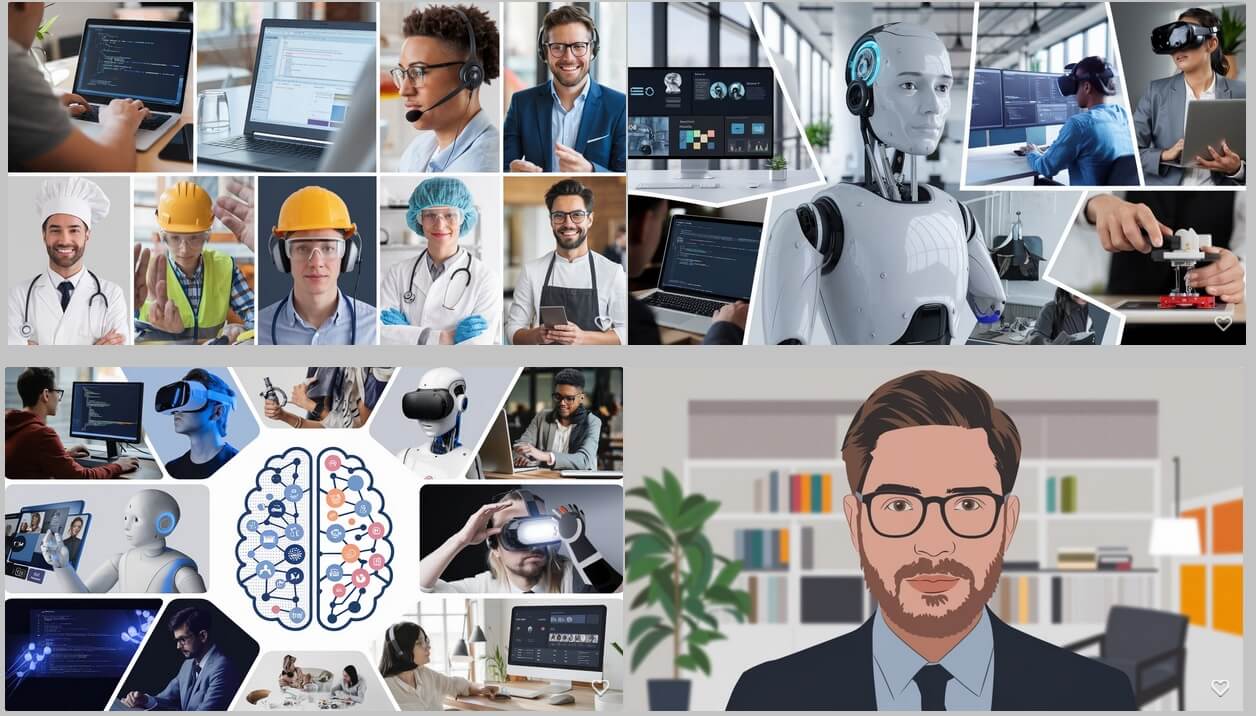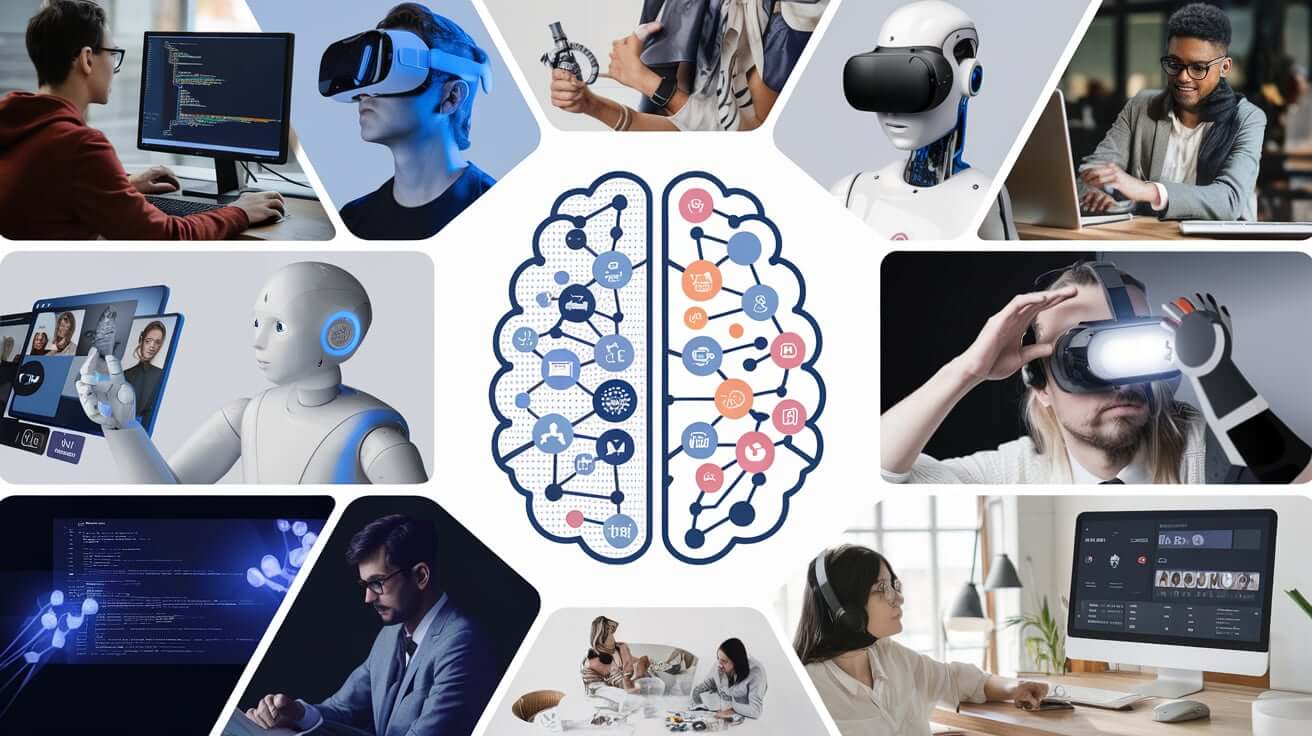
The economy is constantly evolving, influenced by technological advancements, globalization, and shifting workforce dynamics. As these changes accelerate, professionals face increasing pressure to adapt, learn, and grow to remain competitive.
This article explores the skills most in demand today and offers actionable insights to help you stay ahead in this rapidly changing landscape.
Table of Content
1. Analytical Thinking and Innovation
2. Adaptability and Flexibility
4. Communication and Collaboration
5. Technical Proficiency and Digital Literacy
6. Emotional Intelligence (EQ)
7. Leadership and Social Influence
8. Lifelong Learning and Curiosity
Understanding the Economic Shift
Economic trends reshape industries, creating new opportunities while rendering some traditional roles obsolete. To thrive, we must understand the forces driving these changes and how they affect skill requirements.
Technological Advancements
Technology is at the heart of economic transformation. Automation, artificial intelligence (AI), and digital tools have significantly streamlined operations in healthcare and logistics industries.
According to a McKinsey study, automation could displace 45% of current job tasks while creating new roles requiring advanced technical and problem-solving skills. Proficiency in digital tools and understanding emerging technologies are now optional but necessary.
Globalization and Workforce Diversity
The interconnectedness of markets has fostered opportunities and intensified competition. Professionals today collaborate across cultures and time zones, making cultural intelligence and communication skills more important than ever. A survey by PwC highlighted that 75% of employers prioritize diversity and global experience when hiring.
Demographic Shifts
Aging populations in many countries have created labor shortages in major sectors such as healthcare and construction. Addressing these shortages requires a skilled workforce capable of filling innovation, caregiving, and technical gaps.
Top In-Demand Skills for Today's Economy

Focusing on developing these key skills is vital to staying relevant. Employers across industries most seek these abilities.
1. Analytical Thinking and Innovation
Grasping the ability to analyze data, recognize trends, and make well-informed choices has become a key factor in achieving professional success. Employers value individuals who combine logical thinking with creativity to solve problems and propose innovative ideas. For example, data analysts and business strategists rely on this skill to drive organizational growth.
The World Economic Forum's Future of Jobs Report identifies analytical thinking as a critical skill, with 73% of employers emphasizing its importance for future roles.
2. Adaptability and Flexibility
In an unpredictable economy, the ability to adapt is a superpower. Whether learning new software or pivoting to a different role, professionals who demonstrate flexibility are likelier to succeed. Adaptability isn't just about change—it's about thriving through it.
During the COVID-19 pandemic, many educators quickly transitioned to online teaching platforms, learning digital tools to keep classes running.
3. Creativity and Initiative
Creativity goes beyond artistic talent—it's about approaching problems from fresh perspectives and taking the initiative to implement solutions. Fields like marketing, design, and entrepreneurship thrive on originality and proactivity.
LinkedIn's 2023 Workplace Learning Report shows that creativity is among the top five soft skills companies seek in new hires.
4. Communication and Collaboration
Clear, effective communication, whether leading a team or interacting with clients, is fundamental. Collaboration skills, including active listening and conflict resolution, ensure seamless teamwork in increasingly hybrid and remote work environments.
Consider taking public speaking workshops or joining platforms like Toastmasters to enhance communication.
5. Technical Proficiency and Digital Literacy
Proficiency in software, coding, and understanding emerging technologies like AI and blockchain is becoming critical in almost every field. Digital literacy doesn't just mean knowing how to use tools—it involves understanding how technology impacts your industry.
A 2023 Deloitte report revealed that 85% of companies consider digital literacy essential for all employees, regardless of their role.
6. Emotional Intelligence (EQ)
EQ encompasses self-awareness, empathy, and interpersonal skills. As automation takes over technical tasks, emotional intelligence remains a uniquely human ability that drives leadership, relationship-building and conflict management.
Managers with high EQ foster better team morale and engagement, reducing turnover rates.
7. Leadership and Social Influence
Even non-leadership roles benefit from the ability to inspire, influence, and guide others. Strong leadership skills help professionals build trust, motivate teams, and navigate organizational challenges effectively.
8. Lifelong Learning and Curiosity
The economy's constant changes demand a mindset of lifelong learning. Whether taking courses on platforms like Coursera or engaging in on-the-job training, professionals who invest in themselves remain ahead of the curve.
Harvard Business Review found that employees who dedicate 5 hours weekly to learning are 47% more productive.
Bridging the Skills Gap

Many workers face a skills gap—where their competencies no longer align with job market demands. Closing this gap requires proactive steps.
Upskilling and Reskilling
Upskilling involves enhancing existing skills while reskilling focuses on learning entirely new ones. Popular methods include online courses, mentorship programs, and industry certifications.
Companies like Amazon have launched reskilling programs that offer employees cybersecurity and data analytics training.
Networking and Mentorship
Establishing a solid professional network can create pathways to new opportunities. Mentorship offers guidance and insights from experienced professionals, helping you navigate career transitions effectively.
Leveraging Transferable Skills
Even if you're shifting industries, many skills—critical thinking, problem-solving, and communication—apply universally. Highlighting these during job applications can demonstrate your adaptability and readiness.
Preparing for the Future

The future job market will continue evolving, bringing challenges and opportunities that demand a forward-thinking approach. Preparing today lays the groundwork for adapting effectively to tomorrow's shifts. By understanding emerging trends and proactively building a skills roadmap, professionals can position themselves to survive and thrive in the dynamic workforce landscape.
Emerging Trends
The shifting economy is creating new avenues for growth while requiring skills that were once considered niche or supplementary. Key areas where opportunities are expected to expand include:
AI and Machine Learning
The emerging adoption of artificial intelligence (AI) and machine learning (ML) is changing industries such as healthcare and manufacturing. Automation, powered by these technologies, optimizes processes, reduces costs, and enables innovation. For example, AI is being used to enhance diagnostic accuracy in healthcare, manage supply chains more efficiently in retail, and create predictive models in finance. As these technologies evolve, roles such as data scientists, machine learning engineers, and AI ethicists are expected to grow significantly.
Professionals in these fields need a solid foundation in programming, statistics, and ethical AI practices. Gaining certifications in AI-related disciplines, such as machine learning through platforms like Coursera or edX, is becoming a stepping stone for those looking to transition into tech-driven careers.
Sustainability Careers
As organizations emphasize sustainability more, demand for green energy and environmental management roles is rising. The transition toward renewable energy sources and governmental and corporate sustainability initiatives have spurred demand for experts in energy auditing, environmental science, and sustainable architecture.
Examples of renewable energy efforts include wind farms and solar power installations. Which require engineers, environmental analysts, and project managers. Professionals equipped with knowledge of environmental regulations, energy policies, and green technologies will find themselves in increasingly valuable positions. Pursuing certifications like Leadership in Energy and Environmental Design (LEED) or degrees in environmental sciences can enhance readiness for roles in this sector.
Healthcare Innovation
The growing aging population worldwide is increasing the demand for healthcare professionals with specialized technical and analytical skills. This demand isn't limited to traditional healthcare roles but encompasses biotechnology, telemedicine, and health informatics. For instance, wearable devices and telehealth platforms are revolutionizing patient care, creating opportunities for professionals skilled in technology and medicine.
According to the U.S. Bureau of Labor Statistics, healthcare-related jobs are projected to grow by 13% by 2030, making this one of the most reliable sectors for job seekers. Fields such as senior care, biomedical engineering, and healthcare data analytics will see robust growth. Training programs in these areas, such as health informatics courses or certifications in medical technology, can provide a competitive edge.
Building a Skills Roadmap

Creating a skills roadmap is essential to remaining relevant and adaptable to these emerging trends. A well-structured plan helps professionals assess their current capabilities, identify areas for growth, and track progress toward their goals.
Assess Current Skills
The initial step requires a genuine assessment of one's skills. This process can include reviewing past projects, colleague feedback, or performance metrics to identify strengths and weaknesses. For example, if technological skills like data analysis are lacking, it may signal the need for focused development in this area.
Tools like self-assessment surveys, skills gap analysis, or career counseling can help clarify where improvements are needed. Additionally, seeking input from mentors or peers provides valuable external perspectives.
Set Learning Goals
Once gaps are identified, the next step is to define clear, achievable learning goals. These should align with career aspirations and the demands of the job market. For instance, someone aspiring to enter the tech field may set a goal to master Python programming within six months or earn a certification in cloud computing.
Breaking goals into smaller milestones—such as completing specific modules or attending workshops—helps maintain motivation and ensures steady progress. A clear timeline for these milestones encourages accountability and reduces the risk of procrastination.
Use Available Resources
The modern learner can access many resources, from free online tutorials to structured degree programs. Platforms like LinkedIn Learning, Udemy, and Khan Academy offer flexible technical and soft skills development options. For more specialized knowledge, boot camps or MOOCs (Massive Open Online Courses) from institutions like Harvard or MIT provide in-depth learning experiences.
In addition to formal education, experiential learning opportunities, such as internships, volunteering, or collaborative projects, can reinforce theoretical knowledge with practical application. Networking events and industry conferences also offer exposure to cutting-edge trends and insights from experts.
Track Progress
Monitoring progress is a crucial aspect of skill-building. Regular self-assessments ensure that learning goals remain relevant and gaps are addressed. Simple tools like spreadsheets, Trello, and journals can be used to track completed courses, certifications, or project milestones.
Setting periodic checkpoints—for example, quarterly reviews—allows professionals to adjust their learning strategies based on market changes or personal interests. Acknowledging small accomplishments along the journey can help build confidence and maintain motivation.
A Long-Term Perspective on Skills Development
While emerging trends and skill-building strategies provide immediate pathways to adaptability, maintaining a long-term perspective cannot be overstated. Lifelong learning ensures that you remain agile as market demands shift over time. Industries evolve, and so must we.
For example, a digital marketer entering the workforce may transition into roles involving AI-driven content generation or marketing analytics over the next decade. Being open to such transitions and ready to embrace change will set successful professionals apart from their peers.
Continuous learning, adaptation, and innovation are essential for maintaining a lasting career and achieving personal fulfillment in a constantly changing world. Building resilience, nurturing curiosity, and staying proactive about professional development are the hallmarks of a future-ready professional.
Conclusion
The changing economy demands a proactive approach to skill development. Focusing on adaptability, creativity, communication, and technical proficiency will help you remain relevant and thrive. Take charge of your career by embracing lifelong learning and staying curious. Remember, the best investment you can make is in yourself.
By understanding the economy's demands and positioning yourself with the right skills, you can build a resilient and rewarding career.
Also Read:
Self-Learning Skills: Proven Techniques for Personal and Professional Growth
4Cs of 21st-Century Learning Skills in Education
How to Develop Critical Thinking Skills in the 21st Century
4 C's of 21st-Century Learning Skills
Essential Learning Skills for the 21st Century
Learning Skills for Students: Your Guide to Academic Success
Key Learning Skills for Academic Success: Effective Strategies
18 New Skills to Learn for Professional Growth
Critical Thinking Skills Can Improve Reading
Top 10 Critical Thinking Skills to Develop for Success
Learning Skills




